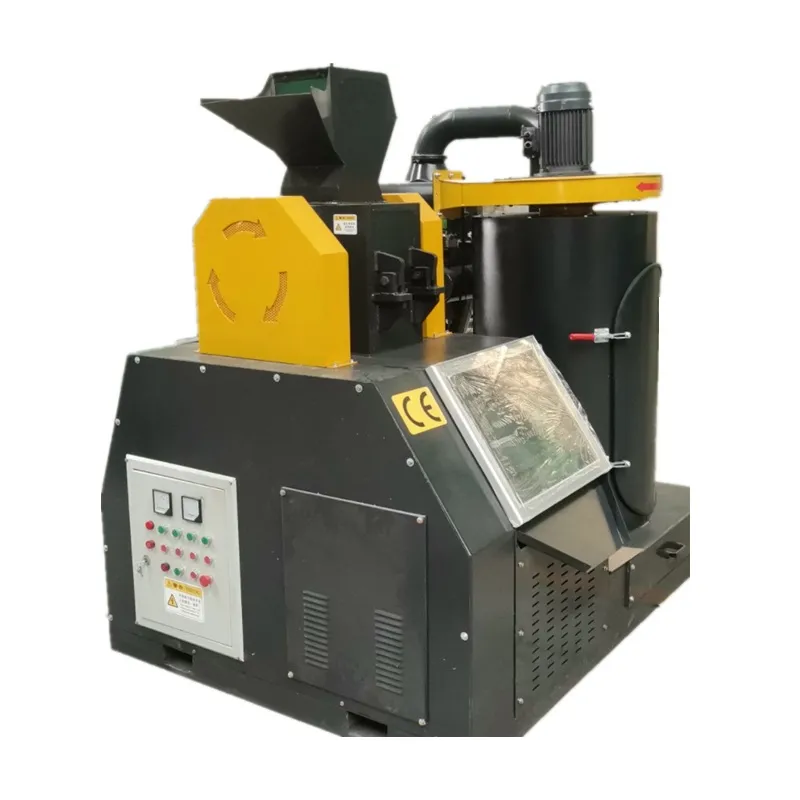

ਨਵੰ. . 16, 2024 02:46 Back to list
Understanding the MSW Sorting Plant An Essential Component of Modern Waste Management
In recent years, the global community has made significant strides toward sustainability and waste management. Among the many innovative solutions developed to address the growing challenges of Municipal Solid Waste (MSW) is the MSW sorting plant. These facilities play a vital role in the recycling and recovery of valuable materials, reducing landfill waste, and promoting environmental wellbeing.
The Role of MSW Sorting Plants
MSW sorting plants act as a pivotal intermediary in the waste management process. As urban areas continue to expand, the generation of waste has increased exponentially, necessitating more efficient methods of disposal and recycling. The primary purpose of an MSW sorting plant is to separate various components of waste, particularly recyclable materials, from the general waste stream. By doing this, the amount of waste sent to landfills is significantly reduced, and more materials can be repurposed or recycled.
How MSW Sorting Plants Operate
The operation of an MSW sorting plant involves several stages, all designed to maximize the recovery of recyclable materials. First, waste is collected and transported to the sorting facility, where it undergoes initial inspections. Upon arrival, the waste is often subjected to preliminary mechanical separation processes. This includes using conveyor belts, shredders, and screens to ensure that larger items are removed before further sorting begins.
Once the waste is efficiently reduced in volume and size, the main sorting process begins. This is typically carried out by a combination of mechanical and manual methods. For instance, advanced technologies such as air classifiers and magnetic separators are utilized to separate materials like metals, plastics, paper, and organic waste. Skilled workers then perform manual sorting to ensure that materials are accurately identified and separated. This step is crucial because contamination can drastically reduce the quality of recyclable materials.
The Importance of Recycling and Recovery

The importance of recycling through MSW sorting plants cannot be overstated. By diverting significant amounts of waste from landfills, these plants contribute to reducing greenhouse gas emissions associated with waste decomposition. Additionally, recycling conserves natural resources and minimizes the need for new raw materials. For instance, recycling metal and plastic requires less energy than producing them from virgin resources, leading to a reduced carbon footprint.
Moreover, recycled materials often find new life in various industries, promoting a circular economy where products and materials are reused rather than discarded. This transition is vital in fighting climate change and promoting sustainability. MSW sorting plants serve as the linchpin in this cycle, ensuring that valuable materials do not go to waste.
Challenges Faced by MSW Sorting Plants
Despite the significant benefits, MSW sorting plants encounter several challenges. One of the primary issues is contamination, which occurs when non-recyclable materials are mixed with recyclables. This can compromise the quality of the recyclables and make the recycling process more difficult and costly. Public education and awareness are essential in addressing this challenge, as citizens must understand proper waste disposal methods.
Another challenge is the fluctuating market for recycled materials. Economic conditions can influence the demand and price for recyclables, impacting the financial viability of sorting plants. The development of strong partnerships with industries that can utilize recycled materials is crucial to ensure a stable market.
The Future of MSW Sorting Plants
Looking forward, the future of MSW sorting plants appears promising. As technology continues to advance, we can expect more efficient sorting techniques, including the integration of artificial intelligence and machine learning in the sorting process. These innovations will enhance accuracy and efficiency, enabling sorting plants to recover even more materials and respond to the evolving complexities of waste management.
In conclusion, MSW sorting plants are an indispensable part of modern waste management systems. By effectively separating and processing waste, these facilities contribute to recycling efforts, reduce landfill dependency, and promote environmental sustainability. As global communities work toward a more sustainable future, investing in and supporting MSW sorting plants will be crucial in the fight against waste and its associated environmental impacts.
Latest news
Troubleshooting Common Eddy Separator Problems
NewsJul.04,2025
The Role of Metal Recycling Plants in Circular Economy
NewsJul.04,2025
The Impact of Recycling Line Pickers on Waste Management Costs
NewsJul.04,2025
Safety Features Every Metal Shredder Should Have
NewsJul.04,2025
How Industrial Shredders Improve Waste Management Systems
NewsJul.04,2025
How Cable Granulators Contribute to Sustainable Recycling
NewsJul.04,2025